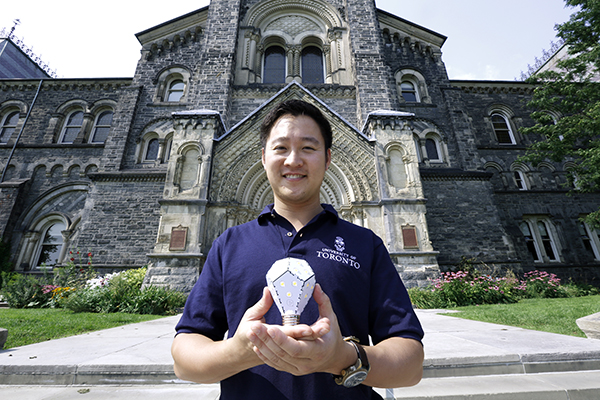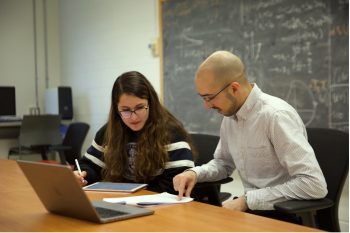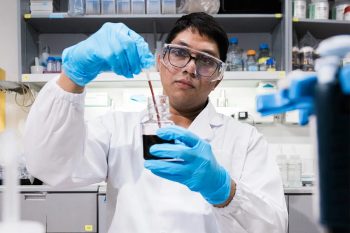Three startups with roots in U of T Engineering are among 36 projects from across the country receiving funding from the federal government in support of their clean technology innovations.
Nanoleaf, QD Solar and ARDA Power Inc. received a total of almost $6 million from Sustainable Development Technology Canada (SDTC), a governmental foundation which helps clean tech entrepreneurs commercialize their products by removing the funding barrier that hinders so many high potential startups.

“Nanoleaf is creating truly innovative products right here in Canada, but it’s difficult to get access to the capital needed to compete globally,” said alumnus Gimmy Chu (ElecE 0T6), co-founder and CEO of Nanoleaf. Chu founded the company with classmate Christian Yan (ElecE 0T6) and Tom Rodinger (IBBME PhD 0T7).
“With this support from the Government of Canada, we can sustain our already impressive pace of product development and continue to make a truly positive impact for the planet and the people living on it,” he said.
With an infusion of more than $2.8 million from SDTC, Chu said Nanoleaf will continue to develop their low-cost and highly intelligent “Smarter Kit” (pictured at right), adding to their collection of the world’s most energy-efficient LED light bulbs already on the market.
QD Solar also secured funding from SDTC, receiving $2.55 million for its work to revolutionize conventional solar panels by capturing infrared light energy that would otherwise be lost using existing panel technologies.
QD Solar, co-founded by Dr. Sjoerd Hoogland, who is also Director of Research, Technology and Innovation of the Sargent Group in The Edward S. Rogers Sr. Department of Electrical & Computer Engineering (ECE), has worked with U of T’s Innovations & Partnerships Office as well as MaRS Innovation to advance the project. QD Solar which will now have the necessary resources to develop, test and de-risk the solar cells, says CEO and alumnus Dan Shea (ElecE 8T0).
“The SDTC’s endorsement is great news for our game-changing technology and the business opportunity it presents for Canadian energy and manufacturing.”
Also receiving funding this year from the SDTC is ARDA Power Inc. ARDA Power was co-founded in 2009 by ECE Professor Peter Lehn and alumnus Luis Zubieta (ECE PhD 0T1) to commercialize power conversion technology developed out of the University of Toronto and licensed to ARDA Power. Recently the company has focused on direct current (DC) microgrid technologies for which it received a $400,000 grant.
“These SDTC funds will support the development, installation and commissioning of a state-of-the-art Burlington DC Microgrid project that will accommodate not only rooftop solar and local energy storage but other new and existing DC and AC sources and loads,” said Aleksey Toporkov, chairman and CEO of ARDA Power. “The microgrid, which will be located at a commercial facility in the GTA will be based on ARDA Power’s DC Microgrid Open Platform.”
This SDTC funding represents “a great recognition of U of T’s impact in the area of clean technology,” said Karen Sievewright, director of U of T’s Banting & Best Centre for Innovation & Entrepreneurship.
“This is evidence of ongoing excellence from the university,” Sievewright said. “Consistently companies affiliated with U of T have received funding from SDTC, growing the local economy and promoting environmental sustainability.”



